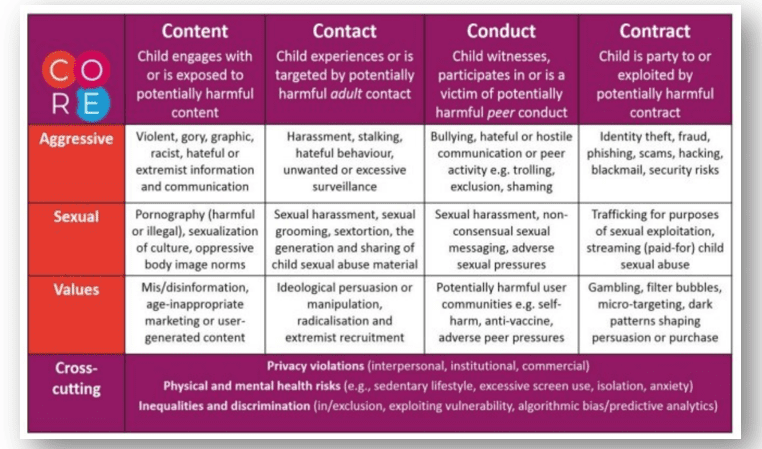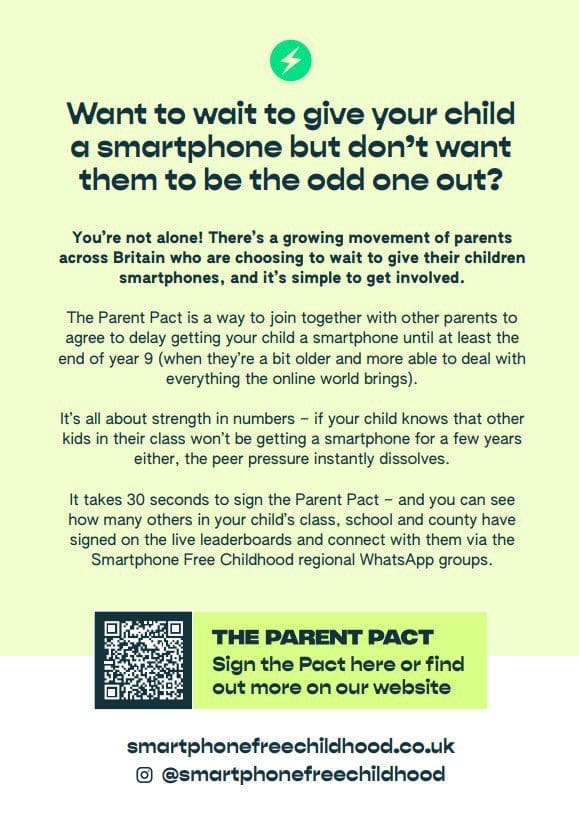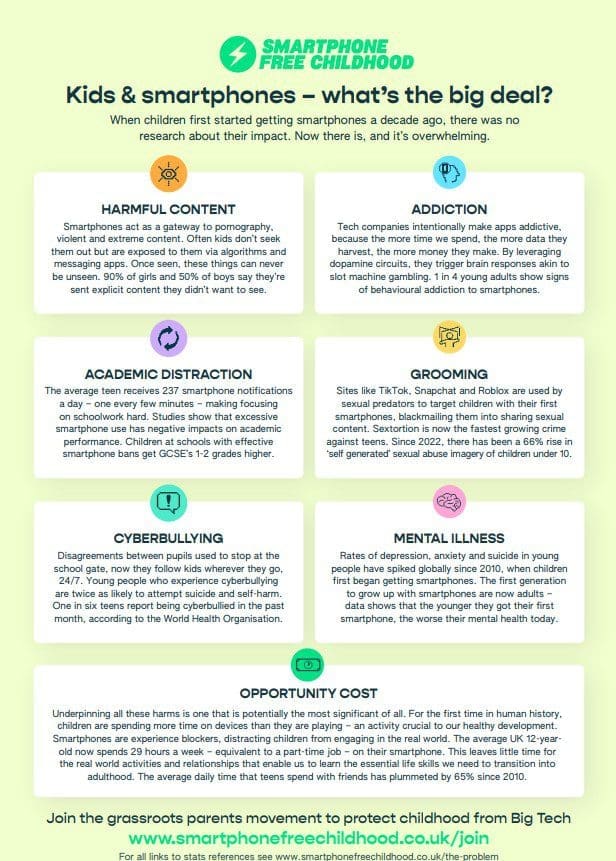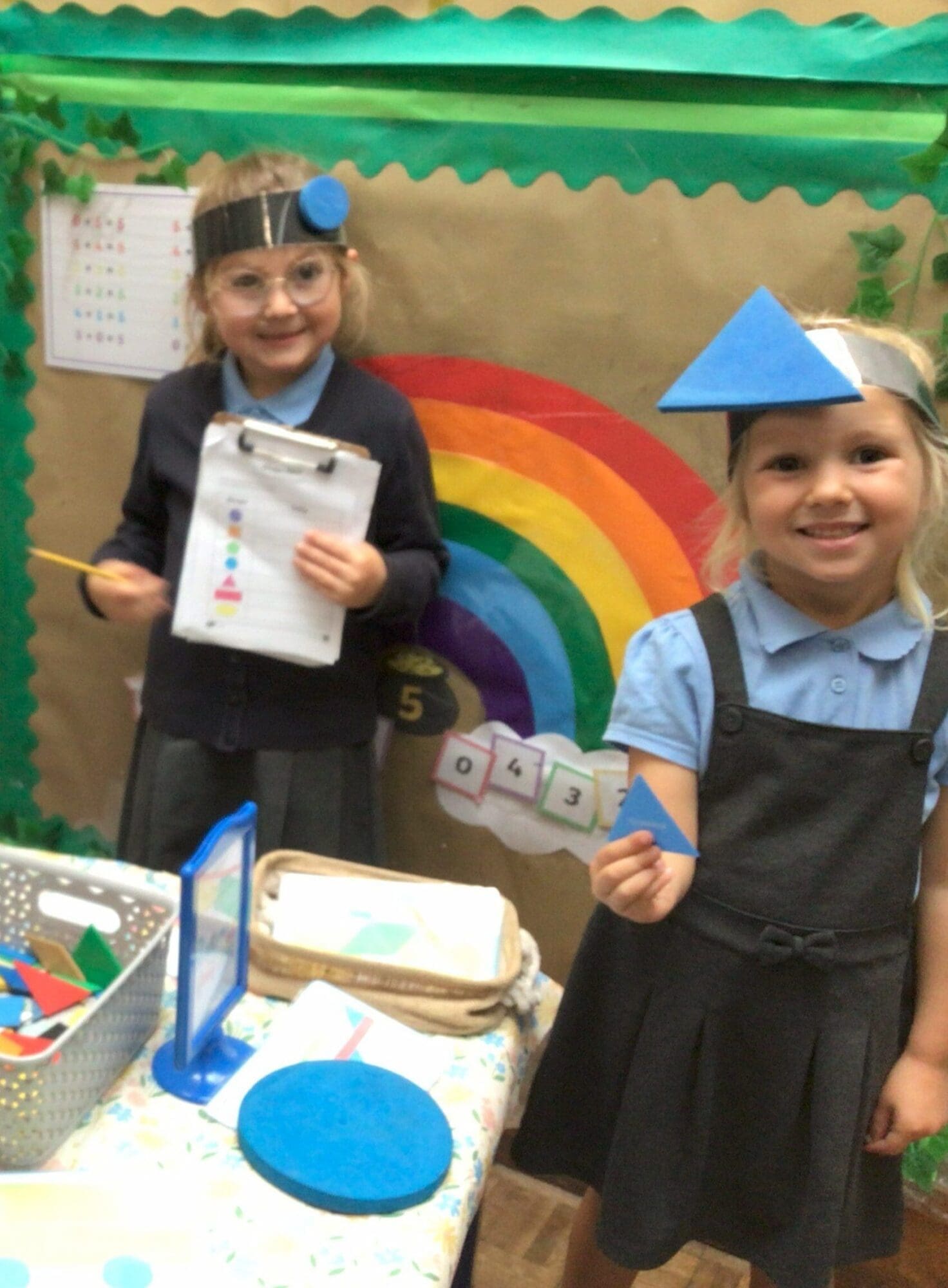Staying Safe Online
Tips and Advice for Parents and Carers
Navigating the digital world is now a key part of our daily lives, whether that be for work, school or leisure. Digital technology can have a profoundly positive effect on our lives, allowing us to connect more easily, access information in new and exciting ways, and streamline processes that used to be laborious. However, as technology continues to change at such a high speed, it can be hard to know what is right for us and for our children. It is important to stay vigilant to the potential risks that face adults and children alike.
Through teaching a rich and engaging Computing curriculum at Rise Park Primary and Nursery School, we equip children with the skills to engage with the rapidly changing world of digital technology that they find themselves surrounded by. In all computing lessons, key principles of online safety and responsible tech use are taught. In addition to this, online safety is explicitly taught on a half termly basis all the way from EYFS to Y6. These lessons help deepen our children’s understanding of the digital world in 8 key areas:
- Self-Image and Identity
- Online Relationships
- Online Reputation
- Online Bullying
- Managing Online Information
- Health, Wellbeing and Lifestyle
- Privacy and Security
- Copyright and Ownership
The digital world is changing rapidly, and staying on top of keeping your child safe can feel daunting. We hope the below information, tips & tricks will prove useful in understanding your child’s internet use.
The NSPCC breaks online safety down into the ‘4 Cs’. These are Content, Conduct, Contact, and Commerce.
Content
It can be very hard to ensure that content children are exposed to online is appropriate. Many devices and websites/apps have parental controls, but these are easily bypassed and inappropriate content often slips through the net of parental controls and filtering. To best protect your child, it is recommended that children should only use devices when a responsible adult is in the room to monitor their internet use.
For information on setting up parental controls on devices, the following links may be useful.
Apple Devices (iPhone and iPad): Use parental controls on your child’s iPhone or iPad – Apple Support (UK)
Android Devices (Samsung, Google, etc) using Google Family Link How to set up parental controls on Google Play – Google Play Help
Individual apps like TikTok, Instagram, WhatsApp and other all have individual parental controls, but it is worth noting that these parental controls are designed for teens and, in fact, these apps are designed for children 13+ so may not be effective in keeping primary school age children safe.
Age Ratings for Content
TikTok: 13+
WhatApp: 13+
YouTube: 13+
YouTube Kids 4+, with parental controls, but inappropriate content often slips the net.
Roblox: Recently reclassified from PEGI 7+ to Parental Guidance, due to the variety of games within Roblox ranging from child friendly (7+) to not appropriate for children (18+)
Fortnite: Recently reclassified from 12+ to Parental Guidance, due to the broad range of content within the game that is not child-appropriate.
Grand Theft Auto V (GTAV) (GTA VI to be released in 2026): 18+
Call of Duty: 16+/18+
For more information on age ratings on specific apps and games, please see the PEGI website, where individual titles can be searched for. For more information on age ratings of TV and film, please see the BBFC
Further to the variety of apps available to children, there is an ever-present risk of exposure to inappropriate content on the ‘open internet’. That is to say when independently browsing the internet through a web browser like Microsoft Edge, Safari, Google Chrome, or Firefox. Without appropriate filtering and parental controls, children are at risk of exposure to pornography, racism, misogyny, self-harm and many forms of radicalisation and extremism.
If you are concerned that a child may be being radicalised online, please speak to a member of school staff immediately where we support can be offered, or visit the ACT: Action Counters Terrorism website
For up-to-date information on apps and games, please see visit the National College for regularly updated parent guides. https://nationalonlinesafety.com/guides
Conduct
Children may be at risk if they freely give, or are manipulated into sharing personal information. Children need to be aware of the impact that their online activity can have on both themselves and other people, as well as the permanence that their digital footprint leaves behind.
It is easy to feel anonymous online and it is important that children are aware of who is able to view, and potentially share, the information that they may have posted. When using the internet, it is important to keep personal information safe and not share it with strangers. Discuss with your child the importance of reporting inappropriate conversations, messages, images and behaviours and how this can be done. Where possible, disable private messaging on all apps and games your child has access to.
Contact
Children can be contacted by bullies or people who groom or seek to abuse them. It is important for children to realise that new friends made online may not be who they say they are and that once a friend is added to an online account, you may be sharing your personal information with them, and that this could be used in an inappropriate manner. Discuss this with your child and ensure that when playing games online, they only play with people they know personally.
If you have concerns that your child is, or has been, the subject of inappropriate sexual contact or approach by another person, it’s vital that you report it to the police via the Child Exploitation and Online Protection Centre (www.ceop.police.uk).
If your child is the victim of cyberbullying, this can also be reported online and offline. Reinforce with your child the importance of telling a trusted adult straight away if someone is bullying them or making them feel uncomfortable, or if one of their friends is being bullied online.
Contract (Commerce)
Young people can be unaware of hidden costs within apps, games and website. Many games include virtual currency, such as Robux in Roblocks and V-bucks in Fortnite, which can be used to buy additional in-game content such as playable content, costumes and avatars. Talk to your children about the ‘real’ value of ‘virtual’ transactions to help them understand the cost of their digital consumption.
Many games and apps have in-app purchases, or ‘microtransactions’, but many apps are ‘free’. Almost invariably these apps are supported by advertising such as pop-up ads, and videos that need to be consumed in order to carry on using the game/app.
Many of the apps are provided by third parties and not content moderated at all, meaning they may not be appropriate.
It is also worth remembering this maxim,
‘If something is free, then you are the product.’
That is to say that ‘free’ apps and games are businesses after all. If they do not receive money from you directly, it is made in other ways – either by bombarding you and your children with advertisements, or by collecting your data which can sold on to third parties. Encourage your children to keep their personal information private, learn how to block both pop ups and spam emails, turn off in-app purchasing on devices where possible, and use a family email address when filling in online forms.
The 4Cs of Online Safety can have a wide ranging impact on children, as shown in the below diagram:

CYBER BULLYING
Advice for Parents and Young People
Online abuse can have a severely negative psychological impact on people’s lives; being made to feel bad online is just as damaging as bullying can be in the real world. Those people who are targeted by bullies online are usually those who are most vulnerable or those in need of emotional support, and the effects of cyber-bullying can be felt by its victims for many, many years, in exactly the same way as real-world trauma.
It can be hard to see how our actions online can have an effect on others. What we should learn is how to show empathy for others: that’s the ability to understand and share the feelings of other people. This can be more challenging in the digital world, because we cannot see the people we are communicating with, connect with how they feel or interact with them face to face.
The following tips will help you be more careful and thoughtful online, and they can be used in a variety of digital situations, such as gaming, messaging or social media. They can help you with the importance of showing kindness to others when interacting with them online.
Be Kind Online – Hints & Tips
- Understand what ‘empathy’ is – it’s the skill of recognising, understanding and caring about another person’s feelings and taking action to help them if they need it. This can be hard online, as it’s difficult to recognise or imagine how someone is feeling if we can’t actually see them! If we try and understand how someone is feeling through only what they write online, we might not understand properly – so it’s a good idea to check what people mean!
- Feel, see and understand – when we imagine ourselves in the situation of another person, that can help us show them empathy. You don’t have to agree with someone else, you just have to understand how they feel. If you feel that you can’t understand how they feel because they have only written messages, try a video call or video chat so you can see the person face to face!
- Develop self–empathy – when we are online, especially on social media, we usually only share the best of our lives with the digital world. Empathy for others can only begin when we look at ourselves, understand that we are not perfect, and then find the kindness within ourselves to help others.
- Offer help – being kind is about noticing when someone else is finding something hard and wanting to help them. If you are online and you notice someone is struggling with something, or is finding something hard, offer to help them or listen to what is giving them some trouble!
- Try to add value – think before you comment on someone else’s post or image: How can I help this person to lower their sadness? How can I add something positive which will make them feel happy?
- Be responsible – always think twice before you act online. Think: Am I acting out of anger or frustration? Do I know all of the facts about a situation before I make a comment? When we are online it is easy to react quickly to something before we know all of the facts.
- Understand the impact of your actions – when we make a comment about something online, we don’t always ‘see’ how that has made someone feel. This means it can be easier for us to think that what we have done is okay. Remember that unkind comments are hurtful and can make others feel upset.
- Say “No!” to pack mentality – it can be very easy online to post negative comments just because other people are doing the same. Be brave and stand out; do your own thing and don’t join in with other people who are being unkind. If possible, remind other people that they are being unkind and that their behaviour is unacceptable.
Smartphone Free Childhood
Advice for Parents
Rise Park Primary and Nursery is encouraging the parent community to engage with the ‘Smartphone Free Childhood’ initiative. Smartphone Free Childhood is a grassroots movement dedicated to improving children’s wellbeing and life chances through a responsible approach to device usage. Principally, this is by encouraging parents to pledge that they will not give their child a smartphone until age 13 – the minimum age to safely use many apps. Smartphone Free Childhood has a variety of resources available online to support parents and children in helping provide a childhood that is not dominated by screens.
As an organisation, Smartphone Free Childhood also applies pressure to government and ‘big tech’ companies to behave more responsibly in safeguarding children.
Please see the following information from Smartphone Free Childhood, or click here for more information.
To sign the ‘Parent Pact’, click here.
Keeping Children Safe



